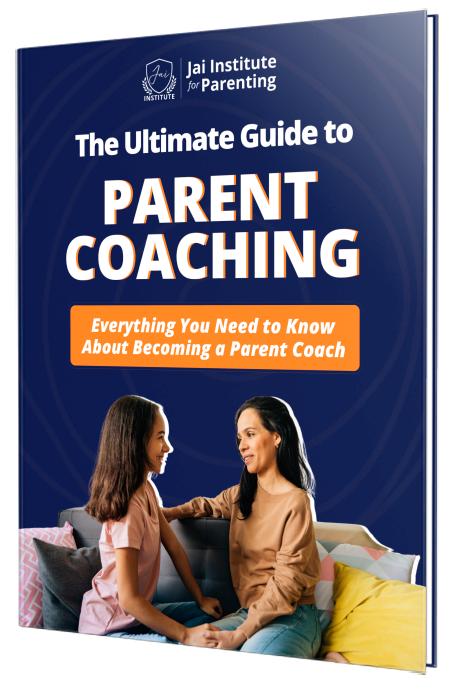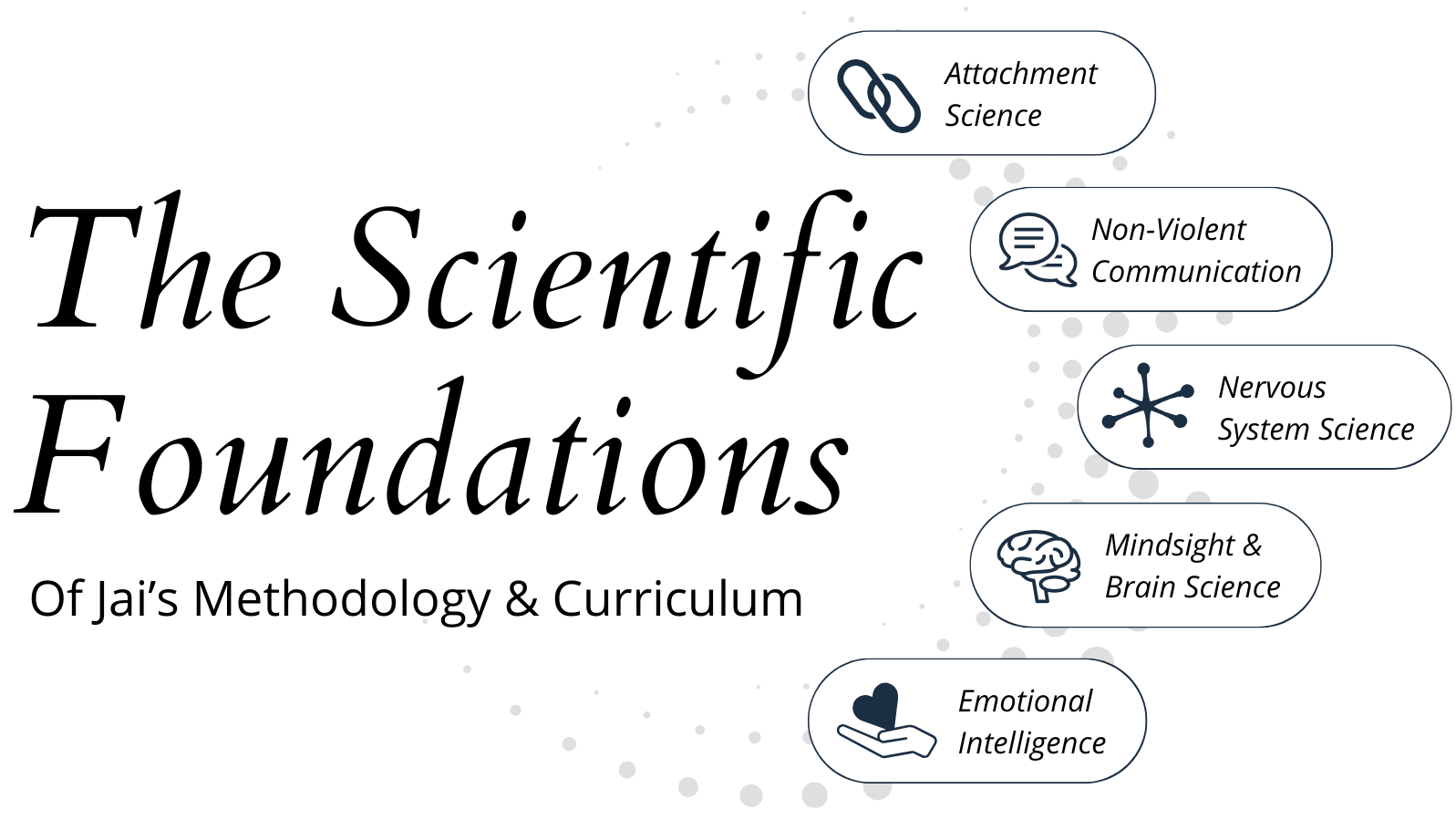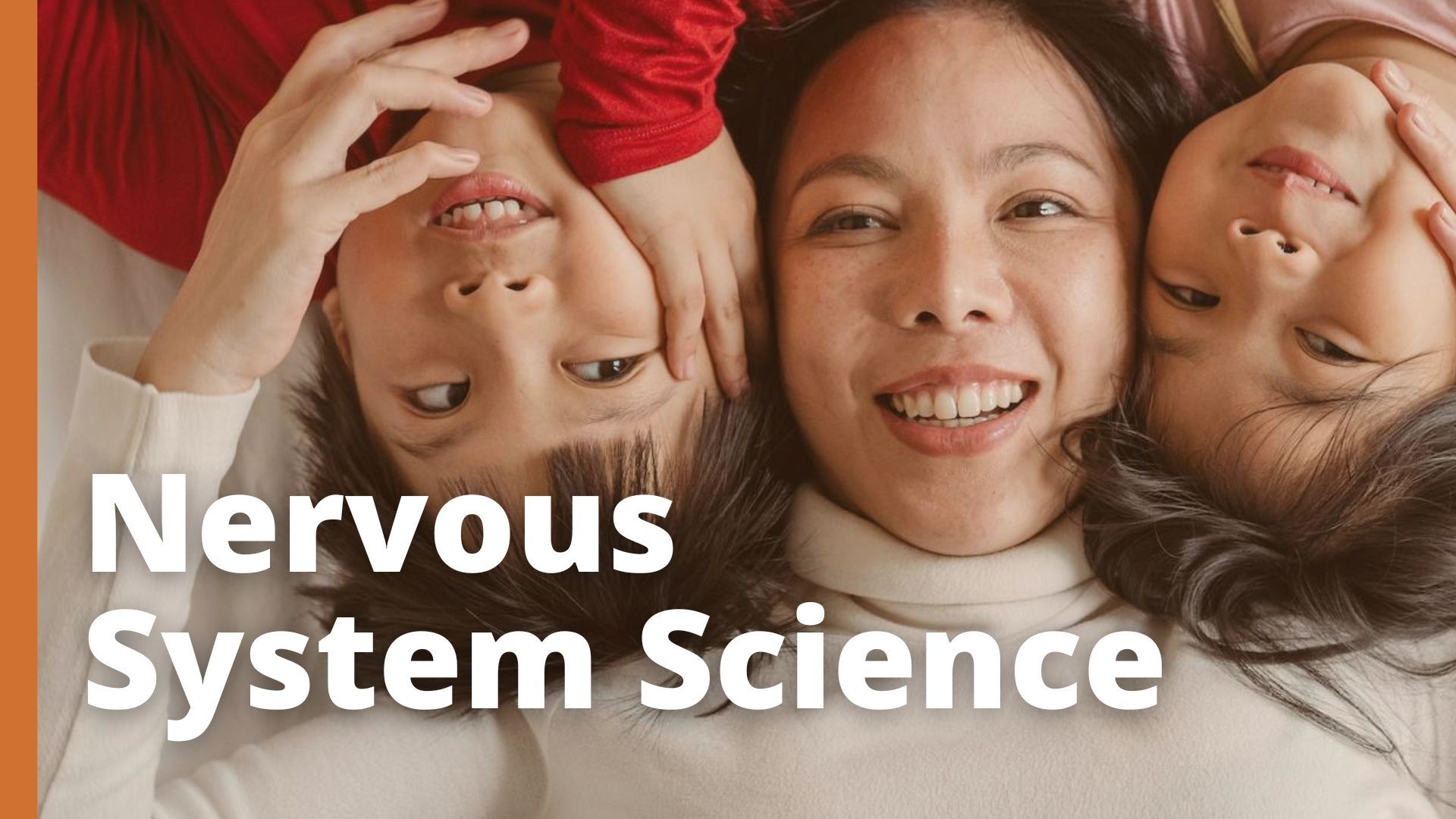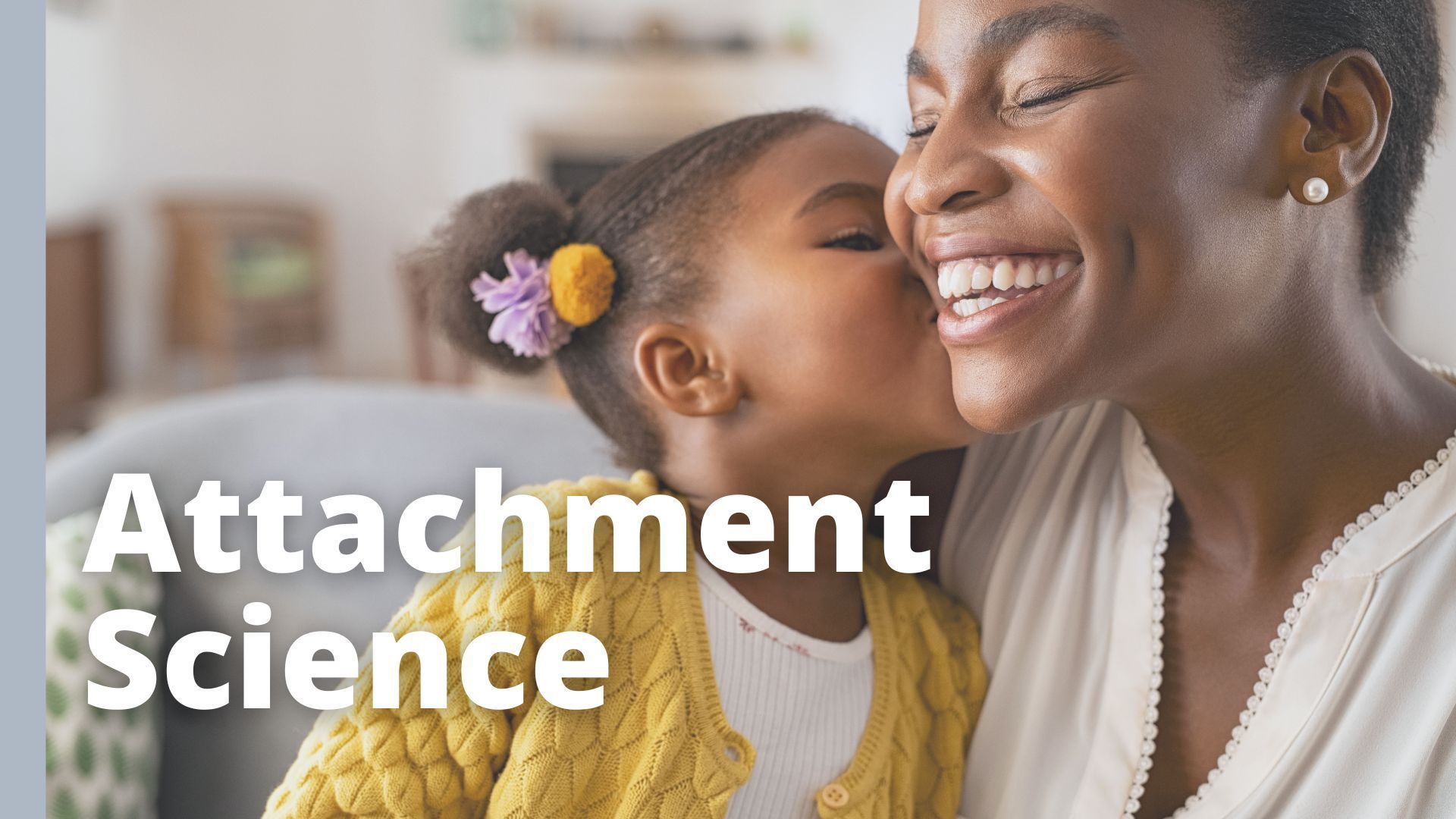Non-Violent Communication
Coaching Non-Violent Communication to Parents
At the Jai Institute for Parenting, we believe that communication is one of the most powerful tools for transformation within families. When parents learn to communicate with empathy, clarity, and intention, it creates a foundation of emotional safety that supports deep, lasting connection with their children.
Non-Violent Communication (NVC) offers a proven framework for fostering respectful dialogue, resolving conflict without shame or blame, and supporting children to express their feelings and needs in healthy ways.
In our Parent Coach Certification Program, we equip coaches with the knowledge and tools to teach NVC to parents, so they can model and nurture emotionally intelligent, collaborative family dynamics.
This page explores the foundations of Non-Violent Communication, why it matters for families, how we train our coaches to embody and teach it, and the key coaching techniques used to support parents in this vital skill set.
What is Non-Violent Communication?
Non-Violent Communication, or NVC, is a communication methodology developed by psychologist Dr. Marshall Rosenberg. It is rooted in the belief that all human beings share the same basic needs, and that conflict arises when those needs are misunderstood or unmet. NVC focuses on connecting through empathy rather than reacting with criticism, control, or coercion.
At its core, NVC offers a four-part process to support compassionate connection:
- Observation: Noticing what is happening without evaluation or judgment.
- Feelings: Identifying and expressing emotions.
- Needs: Recognizing the universal human needs underlying those feelings.
- Requests: Making clear, specific, do-able requests that invite collaboration.
This framework is especially transformative in parent-child relationships, where emotional reactivity and power struggles often disrupt healthy communication.
Core Principles of Non-Violent Communication
Non-Violent Communication is built on foundational principles that guide both internal and interpersonal dynamics:
- Every behavior is an attempt to meet a need. Whether in a child or adult, behaviors signal deeper needs. Recognizing this opens the door to curiosity rather than control.
- Feelings are messengers. Emotions are not problems to be fixed, but indicators of underlying needs being met or unmet.
- Empathy before problem-solving. When we feel heard and seen, we are more open to collaboration.
- Power with, not power over. NVC seeks to create mutual understanding and respect, not dominance or submission.
These principles serve as the philosophical and practical bedrock for coaching conversations that cultivate connection and transformation.
The Role of Empathy in Parent-Child Relationships
Empathy is the cornerstone of NVC and a foundational skill for parent coaches. When children experience empathy, they feel emotionally safe, seen, and understood. This emotional safety fosters the development of self-regulation, resilience, and a secure sense of self.
Parents often ask: “How do I get my child to listen?”
A better question is: “How can I create an environment where listening and cooperation are natural outcomes of mutual respect?”
Empathy is what bridges that gap. It models emotional intelligence, teaches children to listen to others, and de-escalates tension. In our training, coaches learn how to guide parents to meet their children’s feelings with curiosity instead of control, and to model self-empathy in moments of stress.
Why Non-Violent Communication Matters for Families
While most parents want to foster healthy communication, many were not raised with models of empathetic dialogue. Without support, parents may resort to power-based strategies such as yelling, withdrawing, criticizing, or giving in, especially under stress. These patterns are often inherited and unconscious.
By teaching NVC, parenting coaches help families shift away from fear-based or reactive patterns toward open-hearted connection and relational safety.
Reducing Conflict in the Home
Families experience conflict—this is inevitable. What matters is how conflict is handled. NVC offers parents the skills to:
- De-escalate arguments without yelling or threats
- Identify triggers and self-regulate before responding
- Express frustration without blame
- Invite their children into problem-solving instead of coercion
When parents learn to replace “power over” communication with “power with” connection, children become more open to cooperation. Coaches support parents in building awareness of their reactive patterns and offer tools for conflict repair and prevention.
Strengthening Parent-Child Bonds
The strength of a parent-child relationship is shaped less by how often they disagree and more by how safely they reconnect.
NVC helps parents remain present in emotionally charged moments, hold space for their child’s full experience, and return to connection even after a rupture.
As parents practice empathy, make clear requests, and acknowledge their own missteps, trust deepens. The parent becomes a “safe harbor” where the child can land—especially during big emotions or mistakes.
Parenting coaches help families establish rituals of repair, model vulnerability, and cultivate authentic connection that endures through all stages of childhood and adolescence.
How the Jai Institute Trains Coaches in Non-Violent Communication
The Jai Institute for Parenting trains coaches not only to understand NVC intellectually, but to embody it as a lived skillset. Our curriculum goes beyond theory to support personal transformation, self-regulation, and practical application.
NVC is woven throughout our
curriculum in both personal reflection work and coach training modules. Coaches first integrate the practices into their own lives, then learn to guide parents through the same journey.
Training Curriculum Overview
Emotional intelligence and nervous system regulation are foundational to Jai's Parent Coach Certification Program.
Coaches begin by developing self-awareness around their own emotional responses and stress triggers, learning how the nervous system influences reactivity, communication, and co-regulation.
This self-regulation work allows coaches to model and teach parents how to move from reaction to presence, creating emotional safety in their homes.
As seen in our comprehensive Program Syllabus, Jai Certified Parent Coaches are trained in The 10 Steps of an Empowered Conversation, Jai’s proprietary framework for guiding connection-based dialogue. This process breaks down the elements of healthy, respectful communication into actionable steps that coaches can use to help parents de-escalate conflict, express feelings without blame, make clear requests, and move toward mutual understanding.
Another core component is The P.E.A.C.E. Process, a five-part framework that supports parents in navigating difficult moments with their children. Coaches learn how to teach this process as a practical alternative to traditional discipline, replacing threats, punishments, and rewards with empathy, boundary-setting, and collaborative problem-solving.
Throughout the program, coaches are taught how to support boundary setting without control or compliance-based strategies. Instead of enforcing behavior through fear or authority, coaches guide parents to set loving, firm, and developmentally appropriate limits that respect the needs of both the parent and the child. This empowers families to move away from the power-over model and toward authentic leadership.
In addition, the curriculum explores generational pattern awareness and reparenting tools, which help coaches support parents in recognizing the communication patterns they inherited, many of which are rooted in control, shame, or emotional disconnection. Coaches help parents reframe these patterns and consciously choose more connected ways of relating—often beginning with healing their own inner child experiences.
Finally, coaches are trained in somatic awareness and self-connection practices. These practices are designed to bring coaches and parents into deeper connection with their bodies, emotions, and internal states. By learning to pause, reflect, and feel into their needs and values, parents become more grounded and intentional in how they communicate. Coaches guide clients in cultivating these skills to support emotional presence and clarity, even during challenging moments.
Together, these components ensure that coaches leave
Jai's Parent Coach Certification Program with a comprehensive, embodied understanding of Non-Violent Communication and how to support transformational change in the families they serve.
Practical Applications for Coaching
Certified Jai Parenting Coaches are equipped with the tools and confidence to guide parents through transformational communication shifts using Non-Violent Communication (NVC) principles. One of the core applications of this training is the ability to facilitate powerful one-on-one coaching sessions.
Coaches learn how to structure conversations that move beyond surface-level behavior management and into deeper exploration of emotions, needs, and relationship dynamics. These sessions become a safe space for parents to gain insight, develop new communication habits, and build emotional resilience.
A key skill coaches develop is the ability to help parents reflect on their existing communication patterns with curiosity rather than shame. Many parents come into the coaching process with guilt or fear around their past interactions. Jai-trained Parenting Coaches support them in examining these patterns through a compassionate lens, helping them understand the origins of their behavior without self-blame, and offering new strategies grounded in connection and understanding.
In these sessions, coaches also guide parents to recognize and articulate their own feelings and unmet needs—often for the first time. This process empowers parents to communicate more clearly and to model emotional literacy for their children. Coaches also help parents teach their children to name and express their emotions and needs in age-appropriate ways, fostering emotional intelligence throughout the family system.
To support this learning process, coaches provide parents with concrete scripts and guided practice opportunities. These include step-by-step templates for difficult conversations, tools for initiating repair after conflict, and language shifts that move from control and correction to empathy and collaboration. These scripts are used as learning tools, not rigid formulas, helping parents internalize new ways of relating.
Coaches also draw from real-life family scenarios to help parents apply Non-Violent Communication in everyday situations. Whether it’s navigating morning routines, sibling rivalry, or screen-time battles, coaches support parents in identifying the root needs beneath the behavior and co-creating responses that nurture mutual respect and understanding.
Importantly, Jai coaches are trained in trauma-informed approaches to ensure that Non-Violent Communication is taught in a way that honors the individual histories of each parent. For parents who are healing from relational wounds, the tools of NVC are adapted with care, spaciousness, and sensitivity. Coaches learn how to hold space for grief, resistance, and emotional reprocessing, so that parents can move toward connection without retraumatization.
Through these applications, Jai Certified Parenting Coaches not only teach Non-Violent Communication—they model it, embody it, and support parents in integrating it into the fabric of daily life.
Our certified coaches are trained to:
- Facilitate powerful 1:1 coaching sessions using NVC-based frameworks
- Support parents to reflect on their communication patterns with curiosity, not shame
- Help parents name their feelings and needs and teach their children to do the same
- Provide scripts and practice opportunities for empowered conversations
- Use real-life family scenarios to co-create healthier communication dynamics
Within
Jai's 7-month Parent Coach Certification Program, Non-Violent Communication is not taught as a standalone concept, but as a fully integrated practice rooted in emotional awareness, developmental psychology, and conscious leadership. Coaches explore this approach through multiple, interwoven dimensions that ensure both personal embodiment and coaching proficiency.
Techniques for Coaching Parents in Non-Violent Communication
Teaching NVC is not about handing parents a script. It’s about helping them understand the principles and then integrate them into their unique parenting style. The following coaching techniques are core to our methodology.
Identifying and Expressing Needs
Most communication breakdowns stem from unmet or unspoken needs. Coaches help parents:
- Identify what need is driving their child’s behavior (e.g., autonomy, connection, rest, play)
- Name their own needs without blame (“I need support” instead of “You never help me”)
- Practice expressing needs as requests, not demands
We teach coaches how to differentiate needs from strategies and to guide parents in communicating needs while remaining open to collaboration and flexibility.
Active Listening Strategies
Listening is more than being silent while someone speaks. Coaches teach parents to:
- Listen for feelings and needs beneath the words
- Reflect back what they’ve heard to show understanding
- Pause before reacting
- Ask questions that invite depth, such as “Can you tell me more about that?”
We also help parents recognize their own listening blocks, such as the urge to fix, correct, or dismiss. Learning to stay present and nonjudgmental is a practice that builds trust and connection.
Encouraging Collaborative Problem-Solving
Rather than imposing solutions, NVC invites shared ownership of problems. Coaches model and teach how to:
- Frame issues as “us vs. the problem” rather than “parent vs. child”
- Involve children in brainstorming solutions
- Make requests that are specific, do-able, and not tied to compliance
- Separate requests from demands, and honor “no” as part of respectful dialogue
This empowers children to develop agency and teaches them how to advocate for their own needs while respecting others.
Become a Certified Parenting Coach in Non-Violent Communication
Non-Violent Communication is not just a communication tool. It’s a philosophy of relationship. At the Jai Institute for Parenting, we believe that peaceful parenting begins with a parent’s own transformation. When coaches learn to model and teach NVC, they become catalysts for generational healing and emotional empowerment within families.
Our certification program gives you everything you need to guide others in this work:
- A complete framework for facilitating NVC-based conversations
- Mentorship and practice coaching opportunities
- Live support and community integration
- Tools for emotional regulation and self-connection
- Real-world scenarios and client-ready scripts
This program is for you if you have a longing in your heart to help children by supporting parents to discover a new, more connected and empowered model of parenting so that they can develop rich, life-long relationships with their children.
One of the biggest myths we hear from potential students is the idea that in order to be a Parenting Coach, you need to be a “PERFECT PARENT.” This is simply not the case (nor an achievable ideal!) Jai’s Methodology embraces the truth that we are all human, we all make mistakes and that one of the most powerful skills in any relationship is the ability to create REPAIR: to allow conflict, while staying connected.
While many of our students have backgrounds in education, traditional mental health and medicine, this is not a prerequisite to becoming a parenting coach. This is a space of learning. It is supportive for you to already be on board with
Empowered Parenting, even if you still have fear around it and/or aren’t executing it fully. The desire that you have is all that is required for you to thrive as a future parenting coach!
7-MONTH JAI PROGRAM
Parent Coach Certification
- Transform your family with our powerful, evidence-based, curriculum and proven results.
- Be a part of the solution. Jai Parent Coaches are changing the world, one family at a time.
- Earn a living changing families’ lives, with the freedom that changes yours
The Ultimate Guide to Parent Coaching
- Gain incredible insights, integrate valuable perspectives, and learn new ways of seeing the world.
- Learn new coaching skills, which are applicable in all of your relationships,
personal
and
professional
- Build a business you love, that gives you freedom, flexibility and income for your family










